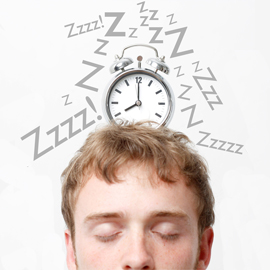Catching ZZs after Lap Band Surgery
Posted: Dec 26 in Health Issues by Staff
 Prior to getting a Lap Band in Macon, chances are you encountered obstacles that prevented you from being able to lose weight effectively. One such obstacle may have been poor sleep. The good news is that Lap Band surgery reduces the impact of these obstacles, helping you to lose weight in spite of roadblocks that come up.
Prior to getting a Lap Band in Macon, chances are you encountered obstacles that prevented you from being able to lose weight effectively. One such obstacle may have been poor sleep. The good news is that Lap Band surgery reduces the impact of these obstacles, helping you to lose weight in spite of roadblocks that come up.
The bad news is that even as you are losing weight, your health could be impacted in a large number of other ways if you aren’t getting enough sleep. And as your bariatric surgeon has likely already told you, maintaining old poor habits in regards to your health can put you at risk for gaining weight back after Lap Band surgery.
Getting more and better quality sleep every night can enhance your weight loss efforts by boosting your energy levels, your ability to concentrate and your overall attitude about losing weight.
Here are a few tips to develop healthier sleeping habits as you lose weight:
- Cut down caffeine. As a general rule, caffeine is fine to drink in moderation, but not if you are having trouble sleeping at night. If you generally enjoy a post-work cup of Joe, try cutting that out of your diet or switch to decaf instead. As part of the Lap Band diet you should already have eliminated all energy drinks and carbonated sodas that might be keeping you up at night.
- Reduce stress. Even if you are not having too hard of a time falling asleep, your stress might be impacting your sleep quality. Try doing deep breathing exercises or other stress reduction techniques for ten minutes before falling asleep.
- Turn off the TV. Sometimes having sound on in the background can help you to fall asleep. If that is you, then invest in a bedside radio or sleep-sound device that will play background noise that doesn’t grab your attention. The television was made to be watched, and as much as you might like having it on, the desire to listen and watch can interfere with your sleep.
- Try not to nap. If you are perpetually tired, this might be hard to adjust to, but the bottom line is that napping often interferes with your ability to sleep soundly at night. Do your best to stay awake until you are going to sleep. For the first couple of days this might mean hitting the hay a few hours earlier than usual.
You should aim to sleep between 7 and 9 hours every night. Make sure your bedroom is comfortable and dedicated to a sound, safe sleeping environment. You might be surprised by how big of an impact getting a good night of sleep can have on your weight loss efforts.
